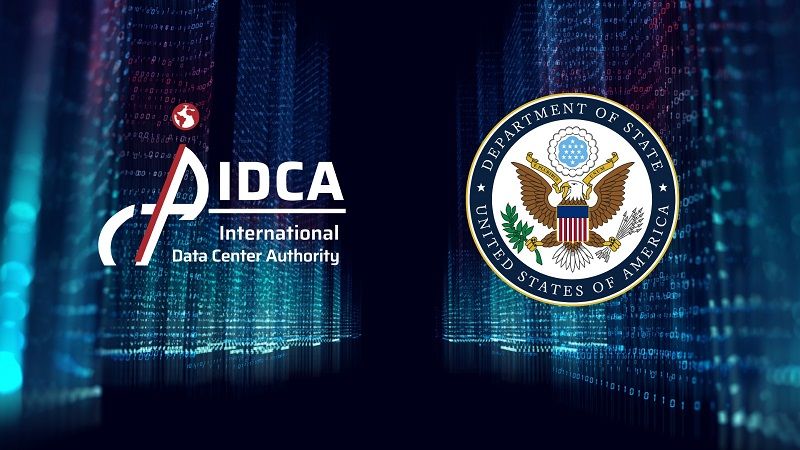
15 May 2023
IDCA Works with the U.S. Department of State to Assess and Remediate Serious Data Center Flaws
The US Department of State (DOS) had intermittent problems with its Global Telecommunications Services (GTS) data center facilities in Maryland. The data center had been built in 1986 by another government agency. Between 2016 and 2018, GTS moved assets to this facility from a commercially-managed colocation (colo) facility that was then decommissioned.
After the migration, it emerged over time that a number of maintenance issues had not been adequately serviced at the Maryland facility, and regulatory compliance appeared to be out of date. GTS management found several “alarming defects,” according to an internal report, and did not want to expose data center personnel to suspected hazards.
So they ordered a temporary shutdown and brought in a team from the International Data Center Authority (IDCA) in 2020 to conduct an audit and assessment of certification and compliance gaps as well as other technical flaws. The IDCA team of several subject matter experts produced a report outlining dozens of issues that needed to be addressed in terms of safety, security, resilience, capacity, sustainability, availability, infrastructure, and operations of the facility. It developed a pair of options to remediate and renovate the facility to bring it into compliance and ensure the safety of its workers.
The audit was done under the difficult conditions everyone encountered in 2020 amidst the Covid-19 pandemic and resulting safety measures. As the pandemic eased and conditions returned to normal, GTS was able to act upon IDCA's recommendations. By early 2023, the data center was being brought into compliance, the facility was on a path to re-opening and workers on a path to return to their jobs.
Evan C. Thomas, Jr., Acting Division Chief of the GTS team at the U.S. Department of State believes that IDCA’s study was game-changing for the department and states, “Our data center audit proved invaluable in educating our senior-level management about the status of our site. We appreciate the hard work of the IDCA team in conducting the DOS audit.”
GTS management understands that its situation with the Maryland facility was not unique. Similar issues of safety and non-compliance occur in data centers throughout government agencies and business organizations. So the management team is now sharing its experience with other professionals in government and business, with the goal of forestalling serious problems in other data centers and optimizing their facilities and operations quickly.
Thomas endorses IDCA's involvement and is open to letting other data center professionals learn from the GTS experience. “We are willing to share what we learned with other government agencies during this process,” he says. “We'd like to prevent others from going through what we went through. We did not want any of our fellow employees to be put at risk. We're also aware that we are working with taxpayers' money and must deliver our services 100 percent of the time with complete reliability.”
The IDCA Assessment Team is Brought In
The IDCA team needed to conduct a full analysis and deliver a detailed report of all audit deficiencies, and related and safety or engineering concerns, then provide recommendations to remediate any issues, meet regulatory compliance, and pursue final IDCA certification.
The IDCA audit and certification process involves a full spectrum assessment of holistic efficacies by looking at several key aspects of a data center: Availability, Capacity, Operations Safety and Security, Resilience, Efficiency, and Innovation. Facilities are rated on a Grade 0-4 scale (G0 being the highest). Standards and regulations from ISO, OSHA, ASHRAE, NFPA, SOX, PCI, FISMA, and others are taken into account, along with determining a site's suitability for IDCA certification. All category scores are then integrated into an Aggregate Efficacy Score.
As the team pursued its inspection and audit, it found a lack of documentation, critical design and implementation flaws, and several complex issues to be remediated throughout the GTS data center.
Many Positive Aspects to the Project
IDCA's report and recommendations to GTS went beyond a description of problems and solutions. Team experts took a holistic approach, imbuing sustainability in every aspect of its analysis and recommendations, for example. The team identified several strengths in the facility and GTS management as well.
One positive aspect at the Maryland data center was the fact that the site also uses only 30% of available incoming power. Its generators also had strong, N+1 UPS redundancy, the site had sufficient underground fuel tanks, and there was more than sufficient N+N UPS configured inside the building. It had good lighting, sufficient fire-alarm panels, sufficient cooling capacity, compliant EMI and particulate environments, and floor-to-ceiling heights allowing for further expansion.
The IDCA team of experts was also impressed by what it called “visionary management” from GTS and a willingness to address, remediate, and resolve all of the outstanding issues. The passion IDCA brings to its work was responded to in kind by GTS management, which needed to protect its people, and serve its customers. Now that team wants to share what it learned with other data center professionals who are facing similar issues.
IDCA provided two alternative options to remediate problems, ensure employee safety, and bring the rooms back into operation. Within its 130+-page final report, IDCA recommended a seven-stage, phased approach, and provided several detailed technical drawings for each of the two options, to remedy the situation and make the Maryland data center futureproof.
A complete analysis of the specific problems identified by GTS and IDCA is provided in a Case Study that's available to IDCA members.
Follow us on social media:


.d57b427b.png&w=3840&q=75)

















